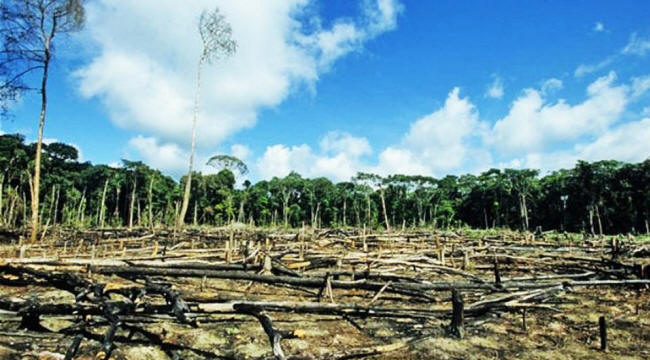|

by Elias Marat
August
22, 2019
from
TheMindUnleashed Website

Peru has
vowed
to put an end to
palm oil-driven
deforestation
by 2021...
Peru has vowed to put an end to palm oil-driven deforestation by
2021,
according to reports, in a move that is being hailed as a
"momentous win" for wildlife and sustainable agriculture by
conservationist group the National Wildlife Federation (NWF).
The Andean nation joins Colombia in its pledge to produce the oil
without deforestation.
Palm oil cultivation has
been a booming crop across Latin America, but has also been one of
the foremost drivers of deforestation in rural regions.
https://twitter.com/NWF/status/1162448018269978624
The NWF partnered with local conservationist group Sociedad
Peruana de Ecodesarrollo, as well as the Peruvian government and
national palm oil Producers’ Association (JUNPALMA) for two years
before making the announcement.
Kiryssa Kasprzyk, who led the federation’s campaign,
said in
a statement:
"This commitment is a
momentous development for the people of Peru and the global
effort to confront climate change. It underscores that we can
feed the world without hurting biodiversity or clear-cutting
tropical forests."
Palm oil is a vegetable
oil that is extracted from the fruits and seeds of the oil palm,
also known as the
African palm, and is a common additive on
supermarket shelves across the globe.
Oil extracted from the fruit of the palm is not only used in foods
like instant noodles, yogurt, ice cream, and wine, but is also used
in biofuel and a range of household products including laundry
detergents, shampoo and cosmetic goods like lipstick.
Roughly 66 million tons of palm oil are produced each year, driving
a trend that has seen forests burned and land robbed to make room
for plantations, contributing greatly to global deforestation and
the displacement of rural populations.
Since 2000, the production of palm oil in Latin America has more
than doubled,
according to Al Jazeera.
In Peru this translated to 140,000 hectares (or 540 square miles) of
lost forest land in 2018 alone, putting the South American nation in
seventh place in terms of forest loss,
according to Global Forest
Watch...
| 

